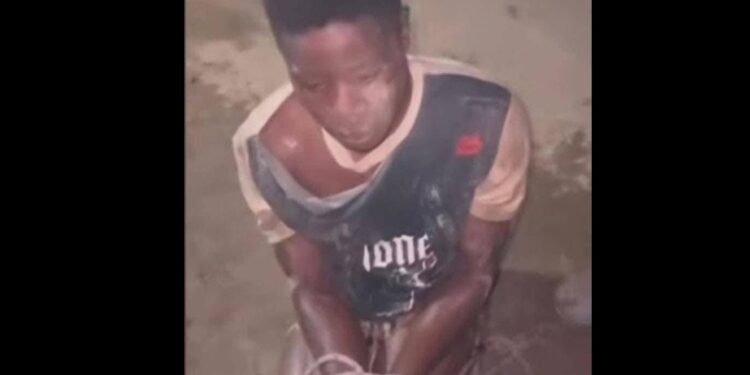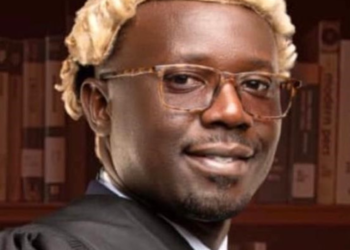𝗣𝗼𝘃𝗲𝗿𝘁𝘆 𝗼𝗻 t𝗿𝗶𝗮𝗹: 𝗧𝗵𝗲 d𝗲𝗮𝘁𝗵 𝗼𝗳 𝗮 y𝗼𝘂𝗻𝗴 m𝗮𝗻 𝗶𝗻 𝘁𝗵𝗲 h𝗮𝗻𝗱𝘀 𝗼𝗳 𝘁𝗵𝗲 p𝗼𝘄𝗲𝗿𝗳𝘂𝗹
Dr Lawrence Mwelwa
“WHO IS Enock Simfukwe?”
A name now carried in whispers, a face etched into our memory, a cry that will not leave our ears. He was not a politician, not a businessman, not a man of wealth or power. He was a poor young man, a son of Zambia, chasing survival in a world that offers little to the weak. And now he is gone—without giving us a chance to hear his side of the story.
“He has died without telling us who sent him—that is if anyone sent him at all.”
We may never know. Did he walk into that place on his own, or was there a shadow behind him? He cannot answer now. Death has silenced him, and with that silence, truth itself has been buried.
“He cried for lenience, but no one heard his cry.”
The camera captured him. The world saw him. But instead of compassion, he was met with cruelty. His body was tortured, his voice reduced to a plea that never found mercy. The farmer interrogated him, not with the authority of a judge, but with the coldness of a man who believed the poor have no right to live with dignity. A phone was used to record his pain, as though his suffering was a spectacle.
“Has the world become so cruel?”
Have farmers now become police officers, turning fields into torture chambers? Have we sunk so low that human life is cheaper than maize, cheaper than livestock, cheaper than the pride of the rich? What happens when a suspect is tortured until his final breath? Is this justice? Or is it murder in the name of property?
“Did you hear the cry of his father?”
Isaac Simfukwe, broken, his tears heavy like stones. His sobs were not just for his son but for a nation where poverty condemns the young before they even dream.
“Did you see the mother collapse?”
Grace Nachilima, a mother whose womb carried him, now watching his body lowered into the ground. She fainted under the weight of her grief. When she awoke, she asked the same question all mothers ask when death steals their children: Why my son?
The people gathered at Chingwere Cemetery, but it was not just a funeral. It was a cry of the poor, a lament of the forgotten. Enock’s coffin carried more than a body; it carried the story of every youth who wakes up each day to fight poverty, only to be crushed by systems that protect the rich and punish the poor.
“Everyone is asking questions.”
Why was he tortured? Why was he interrogated like a criminal before the law even touched him? Why is the poor man’s cry ignored until it becomes silence?
Enock Simfukwe is now a symbol. A symbol of our suffering. A mirror of our broken justice. His death is not just the end of one young life; it is a reminder of the pain of millions. He was beaten not only by hands but by a society that values property more than people.
And as his parents wept, as the soil closed over his grave, one truth stood out: poverty killed him as much as those who raised their hands against him.
Enock is gone. But his cry—captured on that camera, etched in his parents’ grief—will not die. It will haunt us until this nation decides whether it will continue to watch its poor perish without justice or rise to say: Never again.

























